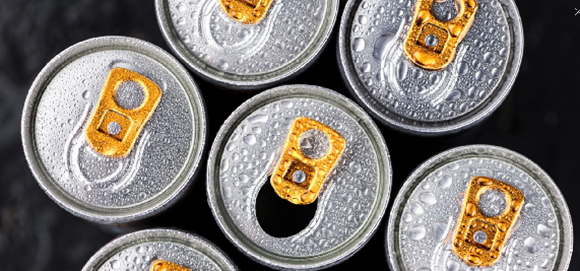
U.S., Jun 10th. - Energy drinks have acquired a new role. Now, in the hands of gymnasts and fitness influencers, they are used not only to stay fit, but also to slim down.
Although many energy drinks contain a lot of sugar (and therefore calories), low-calorie options have proliferated. Some brands suggest that choosing a low-calorie drink rather than a sugary option can help control weight.
Others go further and argue that drinks help stimulate metabolism and burn fat. But can energy drinks really help lose pounds? This is what some experts say.
Do energy drinks help to lose weight?
Any type of caffeine drink will increase metabolism in the short term, explains Andrew Jagim, a sports medicine specialist at the Mayo Clinic and one of the authors of the International Society of Sports Nutrition stance on energy drinks. The problem is that a daily intake of 100 mg of caffeine is estimated to burn 100 calories a day. Probably won't be enough to really move the needle in terms of substantial fat loss over time, says Jagim.
Jeffrey Stout, an exercise physiologist at the University of Central Florida who has studied an energy drinks brand, adds: Energy drinks seem to have a limited effect as a help to lose weight when used alone, but they seem to be more effective when combined with exercise.
So while these companies claim their drinks stimulate metabolism, the results are far from spectacular, says Lena Bakovic, a dietitian who is head of Top Nutrition Coaching. At the moment, there is no correlation between the consumption of energy drinks and weight loss, he stresses.
In most energy drinks, caffeine is the main active ingredient, often along with taurine, glucuronolactone, guarana and group B vitamins, to create what manufacturers call an energy mix. However, the long-term safety and efficacy of some of the ingredients of energy drinks, especially in combination, have not been thoroughly studied.
In some cases, the caffeine of energy drinks comes from guarana, a plant native to the Amazon that contains more caffeine than coffee, tea and yerba mate. Another common ingredient is epigalocatequina galate (EGCG), a green tea compound that can stimulate metabolism and fat oxidation. Taurine, an amino acid naturally present in meat, fish and eggs, is believed to improve performance during exercise. Some energy drinks also include chromium, which one study helps control hunger, but the results of other studies are contradictory.
In addition, some of these low-calorie energy drinks contain low-calorie or calorie-free sweeteners, such as erythrholic, sucralose and stevia. Although generally considered safe, its taste can be unpleasant and erythritol can cause digestive problems in some people.
Jagim points out that other common ingredients, such as electrolytes and group B vitamins, do not pose a high risk or a significant reward. Group B vitamins, for example, are found in meat, dairy, green leafy vegetables and legumes, and perform many functions, including energy production. Supplementing them can help if you have shortcomings (such as vegans and vegetarians), but if you take enough, you will simply expel the excess, Jagim says.
Why energy drinks should be taken with caution
Although their short-term consumption seems safe for healthy adults, the long-term effects of energy drinks are still under study. Jagim says anyone who consumes a lot of caffeine - a morning coffee, an energy drink before training and an afternoon stimulant - is bombing their body with stimulants. Your stress levels are going to be high throughout the day and we know that can have long-term detrimental effects, he says.
The U.S. Food and Drug Administration (FDA) advises adults not to consume more than 400 milligrams of caffeine a day. To put it in perspective, a 350ml can of caffeine soft drink usually contains between 30 and 40 milligrams of caffeine, a 236ml cup of tea between 30 and 50 milligrams and a 236ml cup of coffee between 80 and 100 milligrams. However, energy drinks can contain between 40 and 250 milligrams of caffeine per 236ml ration.
Bakovic and Jagim discourage daily consumption of energy drinks because it can create dependency. The negative health effects would far outweigh the slight metabolic benefit, Jagim argues.
Stout agrees that energy drinks should not be trusted as a strategy for losing weight. You have to focus on a balanced diet, regular exercise, proper sleep and stay hydrated mainly with water, he recommends. (Text and Photo: Cubadebate)